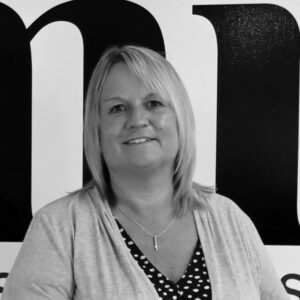Claiming back VAT on fuel expenses can be a tricky process. Working out mileage and gathering the required proof to present to HMRC can be complex and time consuming. However, the rising cost of fuel means that claiming back VAT could save businesses a significant amount of money. The team at AMR Bookkeeping Solutions gives their guide to reclaiming VAT on fuel and petrol.
Who can reclaim VAT on fuel?
To reclaim VAT on any business expense, including fuel, you must be a VAT-registered business.
Businesses with an annual turnover of under the VAT threshold of £85,000 may choose to register for VAT, meaning they will also be able to claim back VAT on their business expenses.
Any company with an annual VAT taxable turnover of over £85,000 must be VAT-registered by law.
You cannot reclaim fuel expenses if you pay a fixed rate of VAT under the VAT Flat Rate Scheme
How much VAT can be claimed back?
HMRC states that you can reclaim 100% of the VAT on fuel used for business purposes. To meet HMRC requirements, businesses need to keep an accurate record of mileage, and keep fuel receipts to provide evidence of any expenses.
How do you reclaim VAT on fuel usage?
VAT can only be claimed back on goods and services bought and used for business purposes. You cannot reclaim VAT on anything purchased for personal use. This is where reclaiming fuel can get complicated, because small businesses and self-employed people often use their vehicles for both business and personal use.
There are two different ways for a business to reclaim VAT on fuel:
- Reclaim all the VAT and pay the right fuel scale charge for your vehicle
- Only claim for the fuel used on business trips by keeping a detailed mileage record
Reclaiming VAT with a fuel scale charge
If you use a business car for private purposes, you can reclaim VAT from your total fuel usage and then pay a fuel scale charge to offset your personal use. This means you do not have to keep a detailed mileage record.
How does it work?
- Reclaim the VAT for all fuel used for your vehicle – including business and personal use
- Use HMRC’s VAT fuel scale tool to work out your fuel scale charge
- Include the fuel scale charge on your VAT return
If fuel usage is very low, the fuel scale charge may be higher than the VAT you reclaim, so this method may not be appropriate for all businesses.
Reclaiming fuel VAT by calculating business mileage
Businesses can make a claim for only the fuel they use for company purposes. For cars used only for business use, such as pool cars, commercial vehicles, and petrol machinery, keeping an accurate mileage record is simpler, as all mileage will have been completed for business purposes.
If you use a vehicle for both business and personal use, you will need to keep a detailed record of the purpose and mileage of all your journeys.
Once you have calculated the percentage of your mileage that was for business use, you can claim that percentage of VAT back from HMRC.
How do I prove my business mileage to HMRC?
HMRC requires that businesses keep an accurate mileage log. For this to be compliant with HMRC standards, you must include:
- The date of the journey
- If the journey is personal, or business related
- The start and end addresses, including postcodes
- The total number of miles driven for the journey
Employers should ask for monthly mileage logs from their employees in order to prove a VAT claim. Self-employed workers will need to keep these records themselves.
How do I submit a VAT claim to HMRC?
Businesses can reclaim VAT on their fuel expenses, alongside any other business expenses, in their VAT return. VAT-registered companies will need to send a VAT return every three months – known as an ‘accounting period.’ HMRC requires a return to be sent at the end of every accounting period even if there is no VAT to pay or reclaim.
If you need help calculating your fuel expenses, or with any other aspect of your business bookkeeping, we’d love to help. Get in touch with our friendly team through our contact form, or give us a call on 01892 559480 for a no-obligation chat about your requirements.









